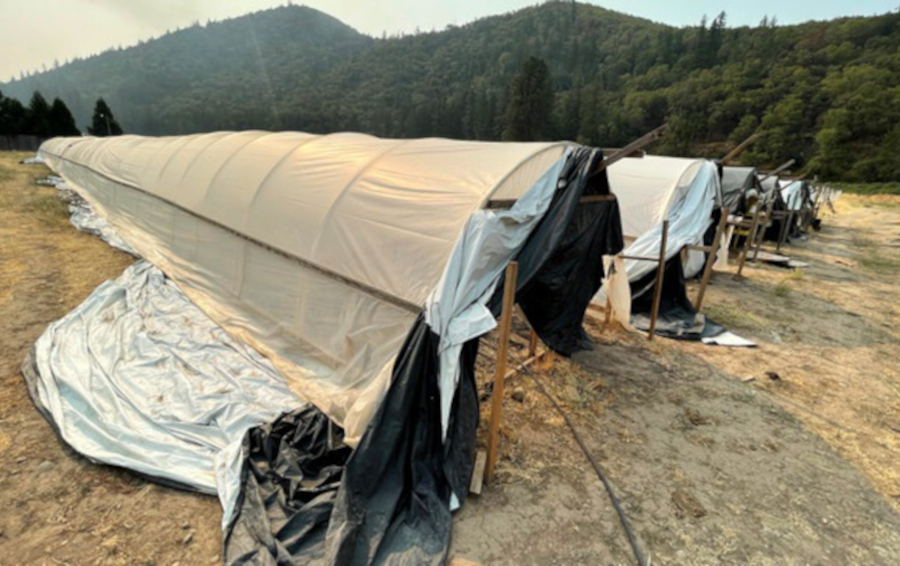Oregon law agencies hope updated rules on inspections and policing of the state’s cannabis industry will prevent illicit marijuana growers from operating under cover of hemp licenses.
The new rules are in House Bill 4121 (HB4121), a measure covering both hemp and marijuana, which was signed into law last March and becomes effective Monday. The measure:
- Authorizes mapping of hemp and marijuana grow sites for law enforcement purposes.
- Requires the Oregon Liquor and Cannabis Commission (OLCC) to work with the Oregon Department of Agriculture (ODA) to develop tests to distinguish marijuana and hemp plants.
- Gives ODA the power to require destruction of marijuana plants found at hemp plantations.
- Allows ODA and OLCC to jointly inspect hemp crops.
- Requires ODA to make rules that allow police to accompany the ODA on site inspections.
- Authorizes the governor to call in the National Guard to help ODA and law enforcement with hemp site visits.
Some licenses frozen
Oregon started issuing licenses for recreational marijuana growers in 2015 following legalization in 2014. Passage of the 2018 Farm Bill, which legalized hemp growing federally, brought many nefarious operators into Josephine, Jackson, and Klamath counties, three adjacent jurisdictions that border northern California, leading to hemp licensing moratoria beginning in 2022.
Josephine and Jackson counties continued with moratoria this year after declaring cannabis “states of emergency.” Officials said they need the break to catch up on license applications and to shore up enforcement. The OLCC meanwhile has halted issuing new marijuana licenses to applicants who submitted their applications after Jan. 1. That halt was ordered in a 2022 bill passed by the Oregon Legislature.
At one point, state inspectors found that more than half of the licensed hemp farms in the southern area of the state were growing marijuana under the guise of hemp, often financed by foreign criminal gangs and drug cartels from Mexico, Russia and other countries, and leading to growing areas described as “military-weapons zones.” State inspectors said they found 53% of licensed hemp operators in Jackson and Josephine counties illegally grew marijuana in 2023.
While a later oversupply of marijuana in Oregon and other parts of the U.S. saw many of the illicit operators depart the state, HB4121 is lawmakers’ attempt to prevent the widespread resurgence of the illegal plantations.
New vendor licenses
The new law also requires hemp retailers and wholesalers who store, transfer or sell industrial hemp or hemp products for resale to obtain vendor licenses from the ODA. The vendor license, also required of out-of-state sellers, is valid from July 1 to June 30, and costs $100 annually. Licensees must obtain separate permits for each vendor site.
Those exempt from vendor licensing include ODA-licensed hemp brokers, shippers, handlers, agricultural hemp seed producers and OLCC-licensed marijuana growers.

